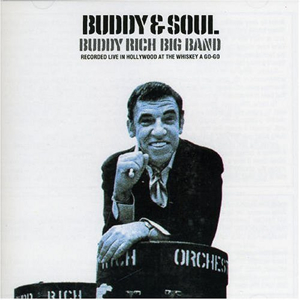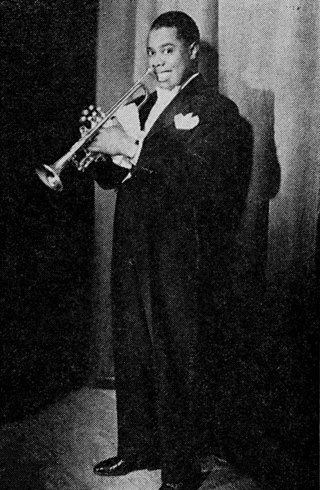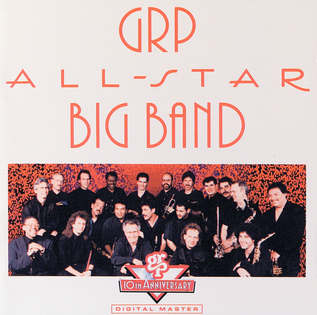
Donald Matthew Redman was an American jazz musician, arranger, bandleader, and composer.

Carlos Wesley "Don" Byas was an American jazz tenor saxophonist, associated with swing and bebop. He played with Count Basie, Duke Ellington, Art Blakey, and Dizzy Gillespie, among others, and also led his own band. He lived in Europe for the last 26 years of his life.
McKinney's Cotton Pickers were an American jazz band, founded in Detroit, Michigan, United States in 1926, and led by Bill McKinney, who expanded his Synco Septet to ten players. Cuba Austin took over for McKinney on drums, with the latter becoming the band's manager. Between 1927 and 1931, they were one of the most popular African American bands. Many of their records for Victor were bestsellers.

The Dorsey Brothers were an American studio dance band, led by Tommy and Jimmy Dorsey. They started recording in 1928 for OKeh Records.

The Ballad of the Fallen is a jazz album by bassist Charlie Haden, with arrangements by Carla Bley, recorded in November 1982 and released on ECM October the following year.

Phil Napoleon was an early jazz trumpeter and bandleader born in Boston, Massachusetts. Ron Wynn observed that Napoleon "was a competent, though unimaginative trumpeter whose greatest value was the many recording sessions he led that helped increase jazz's popularity in the mid-1920s." Richard Cook and Brian Morton, writing for The Penguin Guide to Jazz, refer to Napoleon as "a genuine pioneer" whose playing was "profoundly influential on men such as Red Nichols and Bix Beiderbecke."

Ten Gallon Shuffle is the first recording released by the New York–based Toshiko Akiyoshi Jazz Orchestra featuring Lew Tabackin. The composition Ten Gallon Shuffle was originally commissioned by Phi Mu Alpha Sinfonia Music Fraternity for the University of Texas Jazz Orchestra.

Donald Douglas Lamond Jr. was an American jazz drummer.
"There'll Be Some Changes Made" ("Changes") is a popular song by Benton Overstreet (composer) and Billy Higgins (lyricist). Published in 1921, the song has flourished in several genres, particularly jazz. The song has endured for as many years as a jazz standard. According to the online The Jazz Discography, "Changes" had been recorded 404 times as of May 2018. The song and its record debut were revolutionary, in that the songwriters (Overstreet and Higgins, the original copyright publisher, Harry Herbert Pace, the vocalist to first record it, the owners of Black Swan, the opera singer for whom the label was named, and the musicians on the recording led by Fletcher Henderson, were all African American. The production is identified by historians as a notable part of the Harlem Renaissance.

"Livery Stable Blues" is a jazz composition copyrighted by Ray Lopez and Alcide Nunez in 1917. It was recorded by the Original Dixieland Jass Band on February 26, 1917, and, with the A side "Dixieland Jass Band One-Step" or "Dixie Jass Band One-Step", became widely acknowledged as the first jazz recording commercially released. It was recorded by the Victor Talking Machine Company in New York City at its studio at 46 West 38th Street on the 12th floor – the top floor.

Buddy & Soul is a 1969 live album by the Buddy Rich Big Band, recorded at the Whisky a Go Go club in West Hollywood, California.

The Louis Armstrong Hot Five and Hot Seven Sessions were recorded between 1925 and 1928 by Louis Armstrong with his Hot Five and Hot Seven groups. According to the National Recording Registry, "Louis Armstrong was jazz's first great soloist and is among American music's most important and influential figures. These sessions, his solos in particular, set a standard musicians still strive to equal in their beauty and innovation." These recordings were added to the National Recording Registry in 2002, the first year of the institution's existence.

The Smithsonian Collection of Classic Jazz is a six-LP box set released in 1973 by the Smithsonian Institution. Compiled by jazz critic, scholar, and historian Martin Williams, the album included tracks from over a dozen record labels spanning several decades and genres of American jazz, from ragtime and big band to post-bop and free jazz.
Jacky June was a Belgian jazz saxophonist, clarinetist, and bandleader.

"Singin' the Blues" is a 1920 jazz composition by J. Russel Robinson, Con Conrad, Sam M. Lewis, and Joe Young. It was recorded by the Original Dixieland Jass Band in 1920 as an instrumental and released as a Victor 78 as part of a medley with "Margie". The song was released with lyrics by vocalist Aileen Stanley in 1920 on Victor. In 1927, Frank Trumbauer, Bix Beiderbecke, and Eddie Lang recorded and released the song as an Okeh 78. The Trumbauer recording is considered a jazz and pop standard, greatly contributing to Frank Trumbauer and Bix Beiderbecke's reputation and influence. It is not related to the 1956 pop song "Singing the Blues" first recorded and released by Marty Robbins in 1956.
"My Greatest Mistake" is a popular song written in 1940 by Jack Fulton and Jack "Bones" O'Brien.

The Pretty Sound is an album led by jazz trumpeter Joe Wilder recorded in 1959 and first released on the Columbia label.
The Chocolate Dandies was the name of several American jazz combos from 1928 through the 1940s. The name was an outgrowth of the Broadway production, The Chocolate Dandies, that debuted in 1924.

GRP All-Star Big Band is a jazz album by the big band of the same name. The album was nominated for the Best Large Jazz Ensemble Recording at the 35th Annual Grammy Awards.














